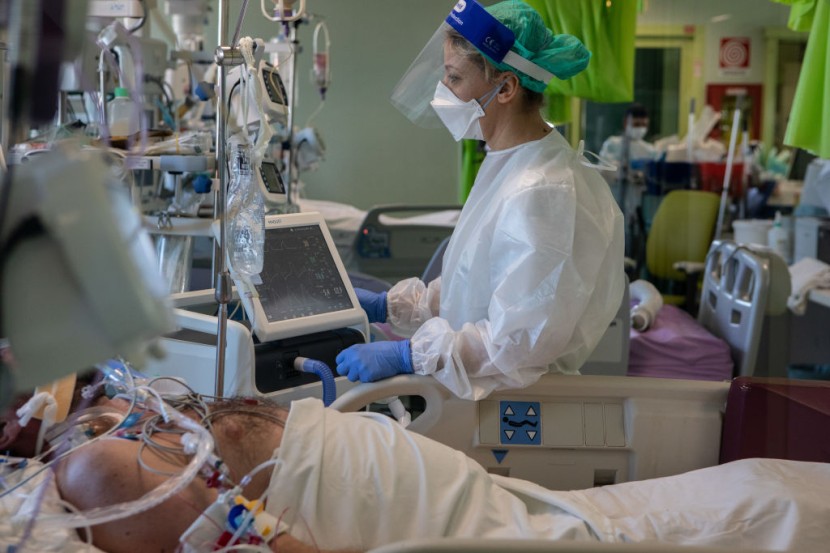A Michigan transplant patient died from COVID-19 two months after receiving a set of lungs that carried the virus, despite having negative results before the operation.
Transplant patient received lungs that carried COVID-19

This was the first recorded case of COVID-19 transmitted through organ donation, as per doctors at the University of Michigan report about the case. Dr. Daniel Kaul, the lead author of the report, told Kaiser Health News that they would not have used the lungs if they had a positive COVID-19 test.
The case raises questions on how to test donor organs for COVID-19 during the pandemic, experts say. Three days after the operation, the transplant patient tested positive for COVId-19 and was in the ICU for 61 days. The donated lungs initially tested negative for the coronavirus when they were evaluated for organ donation.
According to Insider via MSN, the Midwest lung donor died in a car accident and had no prior history of COVID-19 disease or other medical complications. Meanwhile, hours before the procedure, the transplant patient receiving the lungs tested negative for the virus. However, within three days after the procedure, the Michigan woman developed hypertension, fever and was required to take a ventilator.
Read also: Life Expectancy Drops by a Year, While 20 Million Years Are Lost Due To COVID-19, Study Claims
Patient and surgeon tested positive for COVID-19 after a lung transplant
Five days after the surgery, her lungs tested positive for COVID-19 and after round-the-clock treatment for 61 days in the ICU using what is known as bronchoalveolar lavage, doctors collected fluid samples from her lungs and screened the fluid for SARS-CoV-2. The findings were positive.
The exact form of fluid was also screened for coronavirus from the organ donor, and it also provided a positive result, USA Today reported. Soon after, the infection was also tested positive by a thoracic surgeon who performed the transplant surgery.
In the hospital, the woman who had a double lung transplant was treated for COVID-19 and was given the antiviral drug Remdesivir and plasma convalescence, as well as steroids, but her condition worsened. The transplant patient died two months after receiving the lungs.
Read also: New York Restaurant Fires a Waitress for Not Getting COVID-19 Vaccine
Experts proposed added criteria for COVID-19 testing on organ donors
According to the study, it is extremely unlikely to transfer an illness or virus from a donor to an organ recipient, resulting in less than 1% of all transplant cases. Donor-derived disease (DDD), though, is typically fatal, as it is technically known.
Doctors say the occurrence with COVID-19 seems to be an unlikely and uncommon event. But the study raises questions about what procedures doctors can use in transplant organs for COVID-19 testing.
The study's authors propose adding more criteria on donor organs for COVID-19 testing, such as two obligatory non-lung donor COVID-19 tests (one PCR test and one lung swab) and a lower respiratory tract COVID-19 test for lung donations. Laboratory tests should be combined with personal questions about the donor's personal life, such as whether they have recently traveled.
Doctors also recommend that criteria for personal protective equipment (PPE) be determined for organ donation procedures, as no N95 masks and eye protection were required for donor organ extraction in the case study.
Read also: World's Second-Oldest Person Survives COVID-19 Before She Turns 117








